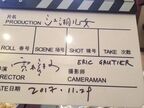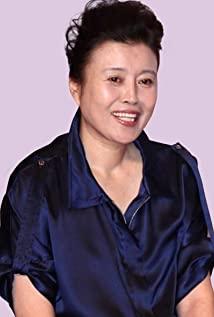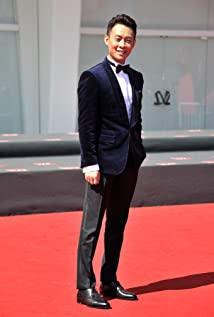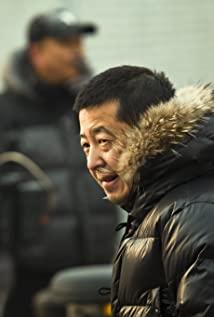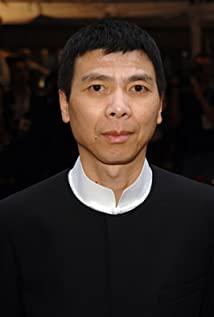Just as Wu Yusen kept putting pigeons in his films, Jia Zhangke, who had admired him for two decades, has been repeating elements that stimulate his creative excitement: coal mines, Three Gorges, laid-off workers, immigration, dancing, Hong Kong and Taiwan. Popular songs, current affairs broadcast news, Caotai team, Hulutun youth, flying saucers, Hong Kong movies of the "Heroes" series, and possibly: Zhao Tao. After "The Children of the Rivers and Lakes" was released in Cannes in May this year, "tribute" comments were endless. It seems that Director Jia is using his emotional creative impulse to review the intentions that can represent China in his films over the past two decades. However, in my opinion, he is more like being immersed in the realist universe created for himself, unable to control himself and unable to extricate himself. It seems that a person is trapped in a soft and comfortable sofa bed to sleep soundly. It is difficult for others to wake him up from the dreaming state at once, and they can only let him wander back and forth in the dreamland he created.
Over the years, Director Jia’s "movie dream" actually has several fixed standards: characters full of specific feelings, symbolic systems rich in various referential meanings, and naturalistic detailed expressions with strong wild tension. , And the individual cannot stop the big picture of socio-political and historical changes in which individuals can only be involved and drift with the flow. We can regard the shaping of emotional characters as a deep projection of Jia Zhangke's inner appeal: whether it is the young underworld idols he keeps mentioning in interviews that he admires and admires, or the underworld idols that appeared around him when he was growing up. All sorts of little people, or those of the opposite sex who once evoked a certain inner desire, are part of his spiritual self-portrait. From his films, we can even feel strongly that the reason why Jia Zhangke chose film as his life-long career at first was mixed with strong inner desires, ridiculous childishness, proud marketers, eager personal heroism and inaction. The sensual, cruel, and cruel characters appear to share with others, which is his most primitive and fundamental motivation. This is his account of the "personal universe" he loves and is obsessed with. Looking at "Children of Jianghu" from this perspective, the most interesting part of it gradually surfaced: We all think that Zhao Tao's Qiaoqiao deserves to be the protagonist because it occupies the main part of the film, but she is essentially But he lives under the shadow of Brother Bin played by Liao Fan all the time. Her emotional logic floats on the surface of the film and becomes an overt and easy-to-understand part, but Brother Bin’s inner thoughts and behavioral motives are always difficult to grasp: what kind of relationship does he want to maintain with Qiaoqiao? What is the purpose in his heart that he most wants to achieve in life? In the ups and downs of his personal destiny, in what way did he satisfy his own thirst and linger?
Therefore, under the symbolic definitions of "underworld", "jianghu", and "children love", what we see is the remote emotional manipulation of a woman by a man over a period of sixteen years. Perhaps It can also be regarded as a long-term conjecture unfolded in a dream that cannot be awakened: a man whose heart is complicated and meticulous, his true feelings will never be revealed, and handsome and cool to the freezing point of mystery, no matter how betrayed and betrayed a deep love With his women, the latter will follow his trail closely with a dedicated spirit of dedication to fighting the fire, eager to gain his sincerity. When he imagined that she was jailed for herself, wandering desperately along the Yangtze River, hoping for other love but returned in disappointment, watching the idealistic flying saucer pass away in the deserted desert, and still willing even after being abandoned for many years. When he took care of his crippled self, and finally endured the loneliness and pain of being abandoned again, what he got in this dream was a kind of superior satisfaction that fully embodied self-worth: she never knew what "I" was thinking, But "I" can hold her spirit in the palm of his hand.
That's right, Brother Bin, who was hiding behind most of the time, as a deep psychological projection of a higher soul, is the true protagonist of this daydream, the master of the "personal universe". And when we watch "The Children of the Rivers and Lakes" from this perspective, it has been very different from director Jia's past movies. Starting from "Platform", Director Jia's film system (the four elements of sentimental characters, symbol system, naturalism and historical changes) gradually formed a fixed structural framework. For a long time, his films have targeted Western audiences as the main target. Therefore, he pays great attention to linking characters with social and political events and historical background changes through special audio-visual means, so that the film has both image expression and textual meaning. All levels are rich in explicability. But this also indirectly led to the fact that in films such as "The Good Man in the Three Gorges", "Twenty-Four Cities", and "Old People in Mountains and Rivers", the characters almost degenerate into marionettes on the backdrop of events at certain moments, becoming macro social, political and Footnotes to the expression of historical concepts.
In "The Children of the Rivers and Lakes", although Director Jia has taken great pains to extract the scenes, costumes, characters, symbols, and metaphors from the old films and overlap them, in order to maintain full consistency with the Jia style system in form. However, the film's treatment of the relationship between Brother Bin and Qiaoqiao gives it a considerable degree of internal literature. The psychological portrayal of the characters no longer depends on the randomness of wandering, but has a detailed overall plan. It no longer borrows personal circumstances to highlight the political and historical background constructed by the code system and social news, but "turns the lens" to focus on personal emotions, thoughts, and inner love, hatred and hatred. Although the time is still flowing and the background is still switching, the changes of the times no longer have the integral and identifying symbolic meaning, but instead become the carrier and stage for the continuous flow of the characters' emotions.
It is the deviation of this creative center that makes "Children of the Rivers and Lakes" perceptually capricious, emotional and even somewhat relaxed and comfortable. The viewer’s subconscious no longer puts the character’s experience into reality to acquire the shackles of painful thinking, but uses reality to disprove the imprints of emotions and emotions that once existed, and to appreciate the hopeless drift of thinking and ingenuity with idealism. The meaning of style pursuit and the mysterious and elusive emotional essence of the real protagonist Bin Ge hidden behind it.
The clear symbolic reference has become a vague pursuit of emotional meaning, and it has evolved from a clear presentation of reality to an ambiguous taste of the psychological mystery of the characters. This can be regarded as the "Jia Xiang" film dream of "The Children of the Rivers and Lakes" The qualitative change brought about. It washes away a trace of the independent temperament that once stubbornly existed in the Jia-style system, and gradually moves closer to the traditional mainstream film creation methodology with rich drama.
Perhaps this reveals the changes that Jia Zhangke is preparing to bring to himself: in the continuation of "Jia Xiang", he paved a step for the next stage of his creation.
View more about Ash Is Purest White reviews





